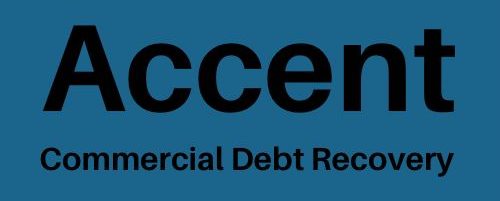Late Payment Legislation
Late and non-payment of commercial invoices is one of the most common causes of business failure. In 2021 the number of private sector businesses fell by 6.5% (389,600). The latest FSB Small Business Index (SBI) indicates 440,000 firms could close in the next 12 months due to late payment of invoices. According to the more conservative estimates, Britain’s 5.6 million SMEs are carrying in excess of £67 billion of late payment debt. Overdue invoices are saddling businesses with debt they would have ordinarily have been able to clear down.
Late payment of invoices places a strain on cash flow, tying up working capital and restricting business growth. There is also a high risk that late payment will become bad debt and affect profitability. Despite the impact late and non-payment can have on a business, dealing with the situation remains a difficult challenge for most. Inflation doesn’t just affect consumer goods. It has been battering SMEs alongside increased debt levels. The SBI found 78% of SMEs surveyed said the cost of doing business is rising. Highest levels of inflation are being witnessed in business overheads, fuel and utilities. Due to higher employment levels and a shortage of candidates to fill vacancies, salaries are rising. As a consequence, the cost of chasing invoices is also increasing.
The UK was one of the first countries in Europe to recognise that the problems associated with commercial late payment and bad debt were having a negative impact on the whole economy. As more and more businesses were forced to close due to bad debt, increasing numbers of people were being made redundant. The Government first introduced legislation to help combat the problem in 1998 when The Late Payment of Commercial Debts Act came into force.
For the first time legislation allowed businesses a statutory right to charge each other interest on the late payment of commercial debt. It was originally designed to be used by small businesses against larger businesses. The statutory interest rate of 8% above Bank of England base rate enables businesses to offset the cost of bank borrowings. Scope has since been expanded to include all businesses including public sector organisations. Since 1998 all UK governments have continued to promote a culture of prompt payment and made amendments to the legislation, for example there is now a provision that allows businesses to claim fixed amounts of compensation from the debtor. The most significant amendment came in 2013 when a provision was introduced to allow the recovery costs of a third party, such as Advocate to be reclaimed from the debtor.
The Late Payment of Commercial Debts Act
Criteria
Late payment legislation applies only to commercial, business to business debt. Both parties should be a business, commercial entity or public sector organisation. Businesses do not have to be limited companies, with the definition including sole traders, the self-employed, partnerships and charities. The legislation does not cover monies owed to a business by consumers.
Defining Late Payment
If you have agreed a credit period with a customer, the payment is late if it is not made by the last day of the agreed credit period.
If you have not agreed a specific credit period, then the legislation sets a 30 day default period. The 30 day default period starts on the day the goods or services are delivered by the supplier. Whether an invoice is 1 day or 1 month overdue, it is still overdue. The Late Payment of Commercial Debts Act can still be applied, and Advocate can still be instructed to recover payment.
Interest is accrued from the expiry date of the credit period or 30 day default period.
Calculating Late Payment Interest
Interest rates are referred to as reference rates and are fixed in two standard six month periods, 1st January – 30th June and 1st July – 31st December. The reference rate is the Bank of England interest rate on the first day of the six month period.
The interest rate to be claimed is the reference rate from the six month period that the payment became late plus 8%. For example if the reference rate is 0.75% the statutory interest rate is 8.75%
Late payment interest is accrued on a daily basis.
Calculating Late Payment Compensation
Compensation can be charged in addition to interest. The amounts are fixed and apply to each invoice that makes up the unpaid debt:
Unpaid Invoice Compensation
Up to £999.99 £40.00
£1,000 to £9,999.99 £70.00
£10,000 or more £100.00
Calculating Late Payment Recovery Costs
Late payment legislation allows creditors to claim the reasonable costs of recovering a debt including the use of a third party. Reasonable costs are easier to quantify with the use of a third party such as Advocate, as the reasonable costs are simply the recovery fee we charge to the debtor.
VAT on Late Payment Charges
With regard to VAT and late payment charges, in most cases as no supply has been made late payment compensation and late payment interest are considered to be outside the scope of VAT. However, where a third party (such as Advocate) is instructed to collect late payment charges at the same time as collecting payment of the principal account, HMRC consider the collection as a single supply subject to VAT. Therefore, Advocate has to apply VAT to late payment charges. The VAT applied is recoverable under normal VAT regulations.
Late Payment in Contracts
It’s not uncommon for businesses to have late payment charges included within their terms and conditions or contracts. Most creditors choose to apply the maximum level of interest and compensation. Some apply lower charges which Advocate reflect in the late payment calculations. If late payment charges are not part of an agreement the default interest, compensation and recovery costs take precedence. Advocates fees are legally enforceable under The Late Payment of Commercial Debts Regulations 2013 which negates the need for the debtor’s consent to both apply & enforce the charges.
Read and download the Late Payment Regulations:
- https://www.legislation.gov.uk/uksi/1998/2481/contents/made
- https://www.legislation.gov.uk/uksi/2002/1674/contents
- https://www.legislation.gov.uk/uksi/2013/395/regulation/1/made
- https://www.legislation.gov.uk/uksi/2015/1336/regulation/1/made


